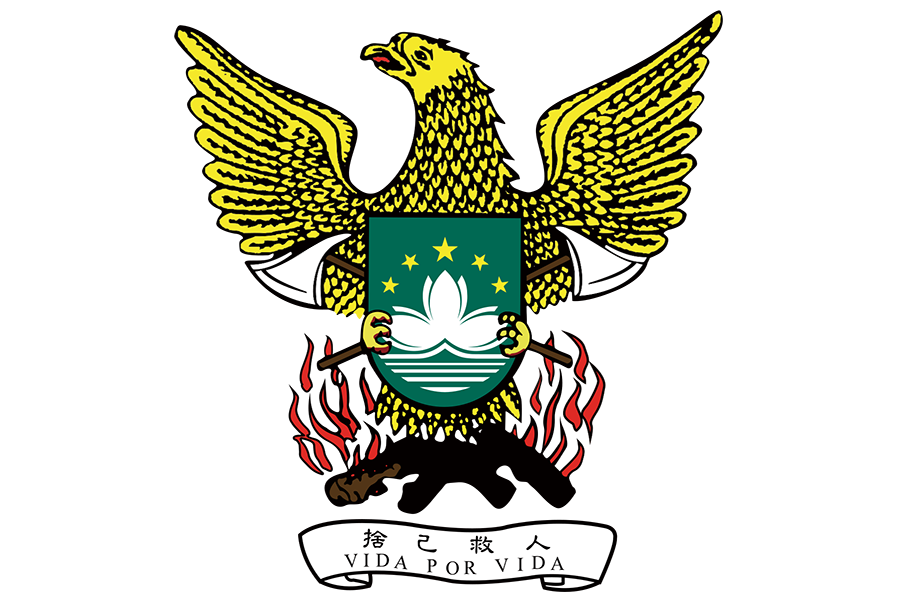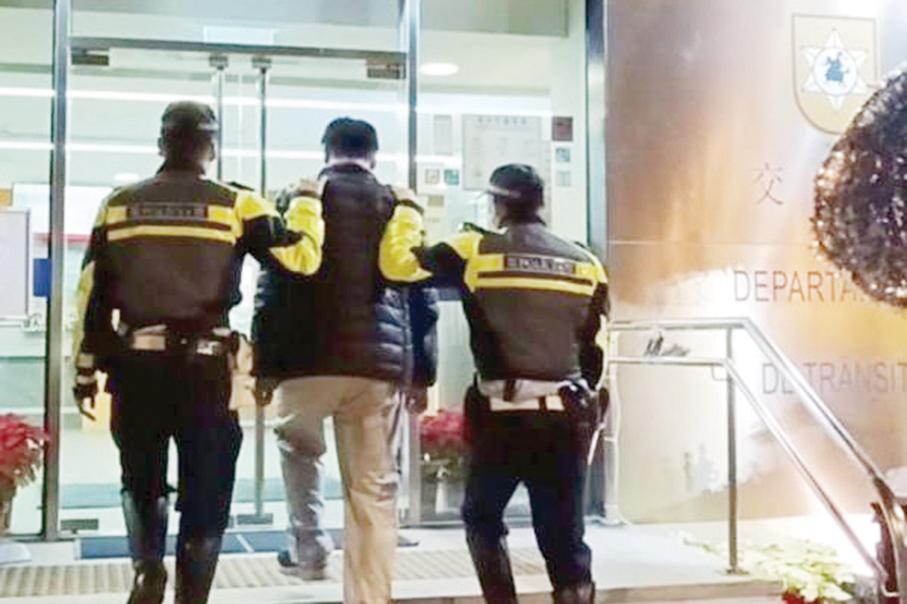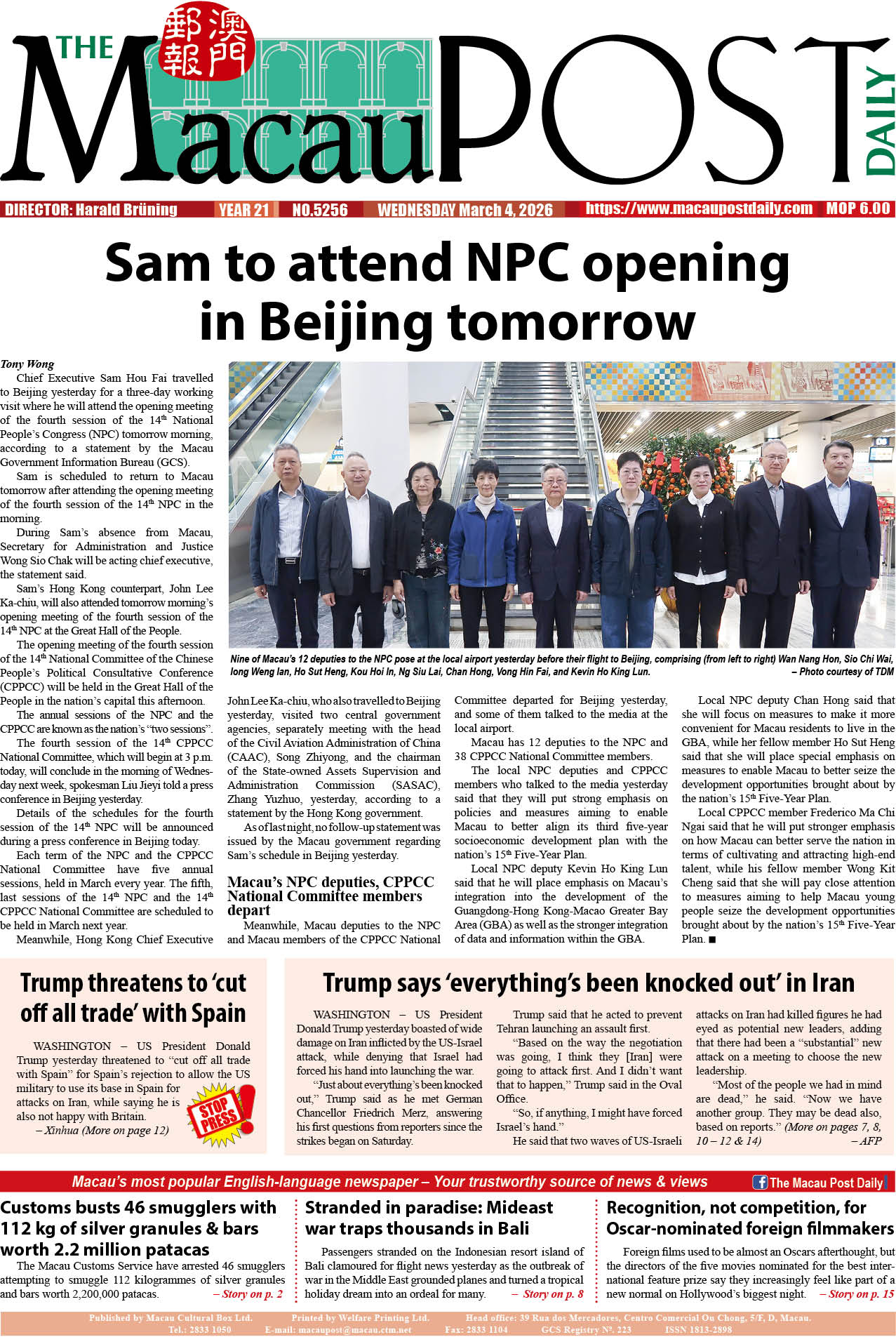Editorial
The reaction by some commentators and commenters to the outcome of Sunday’s direct and indirect Legislative Assembly (AL) elections – their relatively low turnout in particular, reminded me of the age-old idiom of comparing apples and oranges.
Well, let’s be real.
Sunday’s elections can hardly be compared to any of their predecessors since the mid-1970s when the current system of direct and indirect elections (in conjunction with a number of lawmakers appointed by the local head of government – the Lisbon-appointed governor until 1999 and the chief executive chosen by a local election committee ever since) was enshrined in the Macau Organic Statue, which preceded – to a certain a degree – the Macau SAR Basic Law.
Sunday’s elections were held during the government’s strict pandemic control and prevention measures in response to the darned COVID-19 outbreak. Due to social distancing rules, large-scale hustings were out of the question. No doubt, the measures certainly dampened the turnout at the direct election in particular.
Moreover, even the mercury appears to have put a damper on residents’ appetite to vote. After walking up to the Instituto Salesiano polling station to cast my ballot I was drenched in sweat. Well, it was worth all the sweat since the group I voted for was among the seven of the 14 rival direct-election candidacy lists that won at least one seat in the legislature’s hemicycle. The fact that half of the rival lists were able to (re-)enter the legislature shows that voters availed themselves of the choices on offer.
I would like to add that the polling station was well organised and the staff were helpful and friendly.
Quite probably, the fact that five candidacy lists were disqualified from the elections convinced some of their hardcore supporters to abstain, or to cast blank or even spoilt ballot papers.
However, the casting of blank and spoilt ballot papers as a kind of protest vote is nothing new in Macau. For instance, in the 2001 elections (the first after the establishment of the Macau Special Administrative Region), 2,116 of the 83,644 votes cast were invalid, while 550 were blank. Two decades ago the turnout was 52.34 percent. Of course, Macau’s electoral roll has much increased since then.
On Sunday, there were 137,279 voters, corresponding to a turnout of 42.38 percent. There were 3,141 blank votes, while about 2,000 votes were invalid, according to the Electoral Affairs Commission.
And that’s what the idiom of comparing apples with oranges is all about – the socio-political situation behind each election is different for the simple reason that our world is in a permanent flux, not just now but even when our ancestors were still living in caves and, quite certainly, didn’t worry or care about sophisticated electoral rules such as Macau’s proportional representation system.
Sunday’s elections involved two firsts – the first ones that were held during a public health emergency and the first ones that took place after some of the potential candidates and their lists were disqualified. Both are quite likely to have resulted in a lower turnout than in previous elections. The extremely hot weather and occasionally heavy rain on Sunday possibly also kept some electors away from the ballot box.
I talked to several admitted non-voters on Sunday and yesterday about their reasons for refraining from exercising the right to vote. A coffeeshop acquaintance said he didn’t vote because of a combination of three factors – the pandemic, the scorching heat and because after the disqualification of the five lists he found the “electoral soup not spicy enough anymore”. A middle-aged shopkeeper said she would only vote in the Legislative Assembly elections again when “our lawmakers finally start to draft their own bills and not just debate laws proposed by the government.” She said that because of her disappointment with Macau’s legislators in general she hadn’t voted for over a decade.
While it is true that Sunday’s turnout of 42.38 percent was the lowest of any Macau Legislative Assembly election since the 1999 change in administration, it was still better than, for instance, the turnout at the European Elections in 2019 which stood at just 37 percent in the UK, 31 percent in Portugal and 22.7 percent in Slovakia.
It is now up to the 14 directly and 12 indirectly elected lawmakers as well as their seven colleagues who will be appointed by Chief Executive Ho Iat Seng soon to show their mettle.
Of course, the local legislature is not a parliament. Its main functions, according to Article 71 of the Macau SAR Basic Law, are to enact, amend, suspend or repeal laws, approve budgets introduced by the government, decide on taxation according to government motions and approve debts to be undertaken by the government, debate any issue of public interest, and receive and handle complaints from local residents.
However, Article 75 grants the legislature the right to introduce bills individually or jointly by its members as long as they do not relate to public expenditure or the MSAR’s political structure or the operation of the government. More than two decades after the establishment of the MSAR one would expect our lawmakers to be a tad more active on the law-making front.
Of course, Macau has an executive-led system of governance, but that doesn’t mean that our legislators would have to shun the lawmaking power that the Basic Law has given them. The Basic Law’s stipulations should be used at their fullest.
I also hope that the new legislature will finally get its act together to pass a trade union law. Macau is still the only Chinese jurisdiction without such a law, and that’s not exactly anything to be proud of. Of course, it should be a law suited to Macau’s capitalist system that is explicitly protected by Article 5 of the Basic Law.
– Harald Brüning









